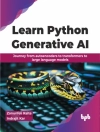Communication is one of the main activities in software projects, many such projects fail or encounter serious problems because the stakeholders involved have different understandings of the problem domain and/or they use different terminologies. Ontologies can help to mitigate these communication problems.
Calero and her coeditors mainly cover two applications of ontologies in software engineering and software techonology: sharing knowledge of the problem domain and using a common terminology among all stakeholders; and filtering the knowledge when defining models and metamodels.
The editors structured the contributions into three parts: first, a detailed introduction into the use of ontologies in software engineering and software technology in general; second, the use of ontologies to conceptualize different process-related domains such as software maintenance, software measurement, or SWEBOK, initiated by IEEE; third, the use of ontologies as artifacts in several software processes, like, for example, in OMG’s MOF or MDA.
By presenting the advanced use of ontologies in software research and software projects, this book is of benefit to software engineering researchers in both academia and industry.
Table of Content
Ontological Engineering: Principles, Methods, Tools and Languages.- Using Ontologies in Software Engineering and Technology.- Engineering the Ontology for the SWEBOK: Issues and Techniques.- An Ontology for Software Development Methodologies and Endeavours.- Software Maintenance Ontology.- An Ontology for Software Measurement.- An Ontological Approach to SQL:2003.- The Object Management Group Ontology Definition Metamodel.- Ontologies, Meta-models, and the Model-Driven Paradigm.- Use of Ontologies in Software Development Environments.- Semantic Upgrade and Publication of Legacy Data.
About the author
Francisco Ruiz is associate professor in the Computer Science Department at the University of Castilla-La Mancha (UCLM) and Vice-Director of the Alarcos Research Group. He has been Dean of the UCLM Computer Science School for seven years and Data Processing Director at the same University for four years. His current research interests include: business process management systems, software process technology and modeling, software maintenance, and software projects planning and managing.
Coral Calero is Associate Professor in the Computer Science Department at the University of Castilla-La Mancha (UCLM). Her research interests are: software quality metrics, quality models, web and portal quality, databases and data warehouse quality and software architectures.
Mario Piattini is a Certified Information System Auditor and a Certified information System Manager by ISACA (Information System Audit and Control Association) as well as a Full Professor in the Department of Computer Science at the University of Castilla-La Mancha, in Ciudad Real, Spain. He leads the ALARCOS research group of the Department of Computer Science at the University of Castilla-La Mancha, in Ciudad Real, Spain. His research interests are: advanced databases, database quality, software metrics, security and audit, software maintenance.












